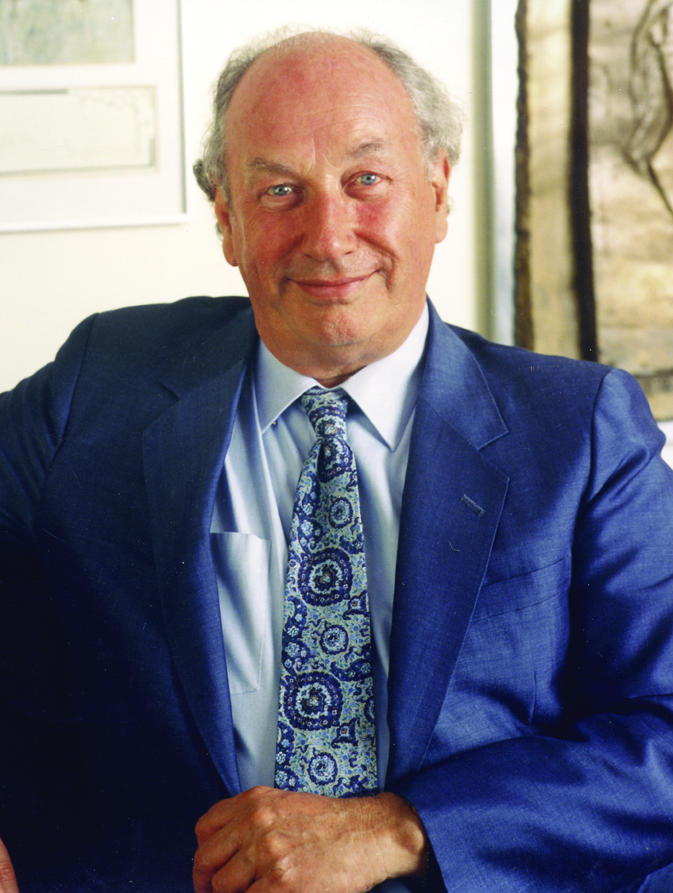Short abstract
Nobel prize winning pharmacologist who discovered how aspirin works
John Vane's contribution to society was the science underpinning the finding that a daily low dose of aspirin prevents heart attacks and strokes, saving millions of lives each year, and the development of angiotensin converting enzyme (ACE) inhibitors for the treatment of hypertension. He made huge advances to our knowledge of inflammation and in 1982 he won a Nobel prize for medicine or physiology for discovering how aspirin works—sharing it with Sune Bergström and Bengt Samuelsson of Sweden.
He was awarded a Lasker prize (often a precursor to a Nobel) in 1977, which he also shared with Bergström and Samuelsson. In 1984 the British government recognised his outstanding achievements and gave him a knighthood in the New Year honours.
John Vane was born in Tardebigg, Worcestershire. As a boy he blew up the kitchen with a chemistry set, so his father built a shed in the garden in which he could do his experiments. He read chemistry at Birmingham University, graduating at 19, before taking a degree in pharmacology at Oxford. He graduated in 1949 and went on to a DPhil, spending a year out to lecture in pharmacology at Sheffield University. In 1953 he went to Yale University, Connecticut, for two years, and then returned to England to the Royal College of Surgeons' Institute of Basic Medical Sciences at Lincoln's Inn Fields.
The head of the Institute was Professor William Paton, succeeded by Professor Gustav Born, two of the leading pharmacologists of their day, and they provided a remarkable intellectual environment. John spent 18 years there, ending as professor of experimental pharmacology. This was the most scientifically productive period of his career. Prostaglandins were newly discovered, he had a hunch that aspirin worked by inhibiting their formation, and he showed that aspirin and indomethacin inhibited prostaglandin synthetase. This work also helped trigger the development of the anti-inflammatory drugs the cyclooxygenase-2 (COX 2) inhibitors.
During this time he was a consultant to Squibb, where he backed an idea by a former colleague from Yale that led to captopril, the first of the ACE inhibitors. Other innovative drugs whose development he oversaw included atracurium, a muscle relaxant, and lamotrigine, an epilepsy drug.
Figure 1.

In 1973 he moved to the Wellcome Foundation, attracted at least in part by the idea that the company's profits were gifted to the charitable Wellcome Trust, and because one of his intellectual heroes, the physiologist and Nobel prize winner Sir Henry Dale, had been one of the company's founding fathers. Here he was director of research and development but found little time to do hands-on research. His Wellcome group, along with Richard Gryglewski in Poland, discovered prostacyclin, a short-lived hormone that dilates blood vessels and prevents platelet agglutination.
He was a man with an insatiable curiosity, a good nose for a sound idea, and a nonsense-detector. Colleagues described his leadership as inspirational: one of them, Joe Collier, now professor of medicines policy at St George's Hospital Medical School, London, said, “He taught us how to work, teach, learn, and even how to conduct ourselves as scientists.”
At 59, with a Nobel Prize tucked under his belt, he retired from Wellcome but not from work: St Bartholomew's Hospital Medical School invited him to be the nucleus of a new research establishment, the William Harvey Research Institute. It is now one of the top 20 UK research establishments, with 130 scientists.
He retired as a full time director in 1995, when he was 68, but became director of the charitable William Harvey Research Foundation. In 1991, aged 64, he and a colleague set up a new pharmaceutical company, Vanguard, to develop compounds that the pharmaceutical industry had put to one side for reasons other than toxicity.
He made regular trips to Poland from 1962, often taking chemicals and equipment, and did much to prevent that country's intellectual isolation. In 2003 he was awarded the Polish Order of Merit.
He published over 900 scientific papers, was joint editor of 20 books, collected over 50 awards and medals including honorary fellowship of the Royal College of Physicians, and did much charitable work.
Though basically shy, he was also sociable, generous, and hospitable. From 1973 onwards he made regular winter visits to the Caribbean island of Virgin Gorda, where he and his wife, Daphne, built a house and made a garden, and where they invited friends from around the world.
He was the target of animal rights extremists, who pursued a campaign against him that was vindictive even by their own standards—his house was firebombed and daubed with graffiti. He responded with characteristic courage, defending the moral use of animals in scientific research, and offering moral support to others who were targeted in a similar way.
He leaves Daphne and two daughters.
John Robert Vane, professor of experimental pharmacology Royal College of Surgeons 1966-73; director of research Wellcome Foundation 1973-85; director, then director-general, William Harvey Research Institute, St Bartholomew's Hospital Medical School, 1986-97; professor of pharmacology and medicine New York Medical College since 1986 (b 1927; DPhil), died from pneumonia on 19 November 2004.
See Reviews p 1408


